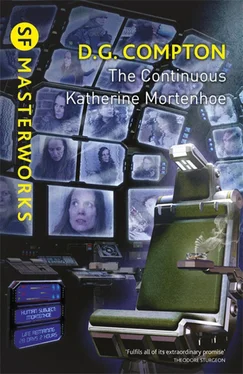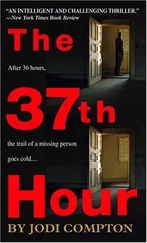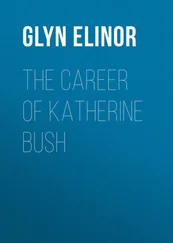She had wondered only very briefly about all Rod’s money. She was richer by far than he. Much more insistent was her curiosity concerning the kiss he had so lightly given her on her forehead. It might have been another fantasy. By now anything might. But it was strangely of a piece with his other kinds of caring. She flexed her starfish fingers and looked down, seeing them unaltered but feeling them red and thick and horny. They would never write her book now. She wasn’t sorry — in it he would have been a sport, a hereditary accident. But she’d watched him get that way. She’d been watching him change all the times when he’d thought he’d been watching her. They had of course both changed. Change was possible. Her book was a sin.
The word stopped her. Even the Dial-A-Vicar had preferred to talk of failure and success, rather than sin and virtue. But she’d crawled out of antediluvian mud on the legs of curiosity, and descended from ancient trees in search of something more than survival. And looked for a meaning the moment her mind was capable of encompassing one. Dying — that too had to be either good or bad, right or wrong. Was it sentimental to think that Rod was telling her which? And what anyway was sentimental but a nasty, modern, ashamed invention?
They reached the outskirts of the town, drove under a flyover, and then up to join the thruway. It was nearly eight-thirty now, the traffic bright and thick. The elevated thruway stalked across the suburbs, giving a slow, dreamlike view of the distant terraces and crescents of the old town, the show town, and beyond it the sea. Rod nudged her and pointed, but she had seen it already. ‘Isn’t it beautiful,’ she said, feeling suddenly very happy.
It always was beautiful. That first glimpse of the sea, because of what it meant, always was beautiful. Between rooftops, unexpectedly around the side of a hill, at the end of a municipal car park, under blue skies or gray, it was one of the most exciting things she knew. It was beautiful with promises, and she could not remember a time when they had not been kept. This, she knew now, was why she had asked Rod to bring her here.
The thruway descended to a gigantic roundabout built half out over the water. She asked Rod to go around twice, just so that she could look along at the old promenade, at the high white Georgian houses and the icing-sugar pier and the streets full of sky. Then they turned off, seeking somewhere outside the Trust where they could park. They were lucky, it was their lucky day, and found a place almost at once, close to the show town boundary, drawing in as another car pulled away… Even having no money for the meter was a lark. They bundled up all the clothes, and the holdall, and Rod’s duffle bag, and the tablecloth full of food, and ran away down the pebbly beach. The gas tank was nearly empty anyway. The car, their magic carpet, could sit there and gather tickets. Its smiling owner would hardly grudge them a fine or two.
She was breathless, and laughing, and dropping towels and things behind her on the ringing stones. A dog joined in, pulled at trailing sleeves, barked a lot. Rod found a sheltered hollow by a breakwater and they scooped it deeper, piling the smooth pebbles up in a wall around them. The dog sat and wagged its tail and barked till Rod threw stones for it to fetch. Finally it got bored and went away. They lay back in their house and stared up at the sky.
‘You know,’ Rod said, ‘it’s not warm. In fact, it’s bloody cold.’
They bundled themselves up in Rondavel’s Margaret’s clothes.
‘I wonder what Harry’s doing at this moment,’ Katherine said, as the thought came into her head.
‘Your husband? Worrying about how he’s going to spend all that money, I expect.’
She turned on one elbow. ‘How did you know Harry was my husband?’
‘I know everything about you there is to know. Date of birth, childhood illnesses, the novels you wrote before you went to Computabook.’
A curl of wind crept over the pebble wall and made Katherine shiver. ‘I didn’t think fringies read newspapers,’ she said.
‘But I’m not a fringie. I told you. I’m nobody’s nobody. The original outsider.’ He linked his hands behind his head. ‘You know, a man actually told me that once, a man who ought to have known better. He was called Klausen. “You’re the original outsider,” he said. “And you’re looking for someone to blame.” ‘
She shivered again. If there was one thing she hated, it was people who talked about their health. And there were other things he was going to tell her, things that already stuck into her. They weren’t nice things. She stood up and held out her hands to him. He protested. ‘Listen to me, Katherine—’
‘No. It’s idiotic, huddling here feeling cold. Come on. You can tell me whatever it is as we go.’
But the pebbles were too noisy, and the walking too difficult, and the sea too exciting as it hissed and nibbled at their feet.
In spite of the wind and the overcast sky, the beach had begun to fill up. Rod kept her by him, and apart, almost as if he were still afraid of her being recognized. Perhaps, on the other hand, he was simply being tactful, for she was no longer even Sunday’s woman, let alone Saturday’s or Friday’s. The sou’wester was gone, and the clothes bore New York labels, and the goggles had been replaced with sunglasses from the pocket of the car. ‘More seasidey,’ Rod had said, handing them to her as they came down off the thruway. So perhaps he was just being tactful, in case she fell down in a spasm or otherwise made an exhibition of herself.
They walked away from the show town with its too-good-to-be-true promenades and pier, along the beach toward the sports pavilion and bathing pool, kicking stones, and pausing, and moving forward in that casual, absorbed manner that beaches bring out in the most purposeful of people. The pebbles were worth noticing, and the tiny sand-hoppers, and the plastic bottle that rolled a little farther in with each wave. They passed a Punch and Judy show, its canvas flapping wildly in the wind, three bored children squatting in front of it, waiting for it to begin. The operator’s feet stuck out under the side, and hammering could be heard.
The swimming pool had one man in it, going doggedly from end to end while another man in white flannels and several scarves ran up and down beside him, shouting. A notice under the diving boards gave the day’s sea pollution level. Past the swimming pool there was a concrete slipway for small yachts, and beyond that a line of wooden breakwaters curving around to another pier, shabby and broken-down. They decided to go as far as the pier and then return to where they had left their things. They were beginning to feel hungry.
Hereabouts the town council’s efforts at keeping the beach clean petered out. Rod took her hand and led her up from the water’s edge, avoiding the heavy scum that heaved gently to and fro, and walking on the pale dry shingle close under the sea wall. The smell here was bad. But they had an agreed destination, so persevered. The sun came out briefly. They didn’t mind the brown water, the complicated smells: they were beach people, superior, self-contained.
The pier was rusty, and ended abruptly about thirty yards out over the sea, leaving the jagged edge of half a gutted dance hall complete with plastic cupolas. On the beach under it elaborate windbreaks had been erected behind which people appeared to be camping. The beach here was clean again.
‘I should have thought of it before,’ Rod said ‘View of the sea, no mod cons, highly desirable. What d’you think?’
He turned to Katharine and she nodded She was excited and at the same time afraid. She was either far too old to be sleeping out on beaches, or not old enough. The stones would be hard and the wind cold, and the sea at night a frightening companion. But she wouldn’t be alone. And if her dwindling hours were to end here there were few better places. The pebbles were real and so was she. And with Rod to talk to she wouldn’t be alone.
Читать дальше












